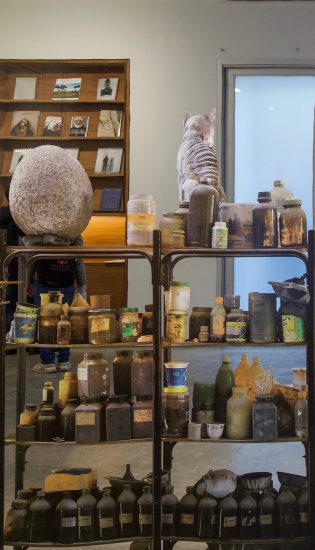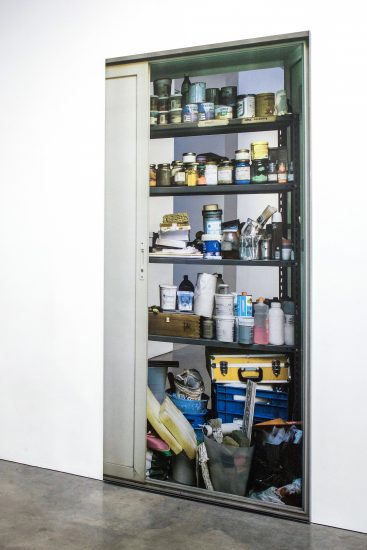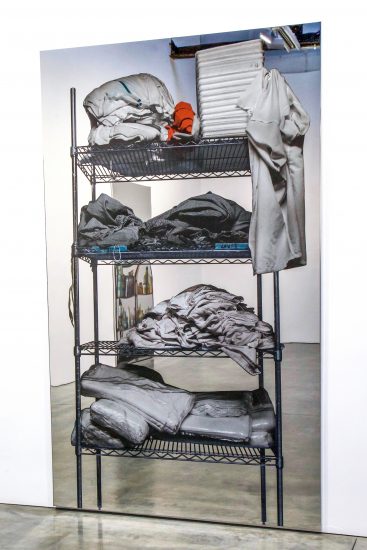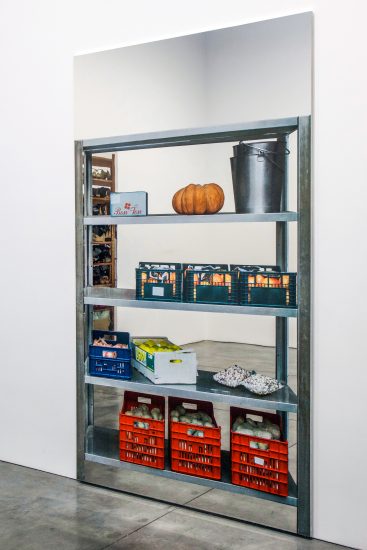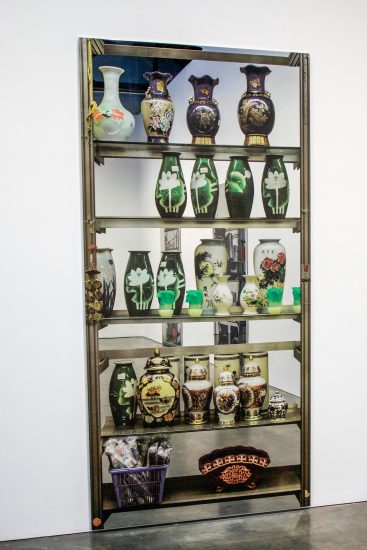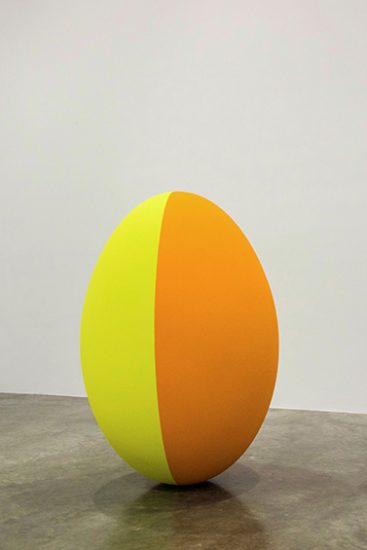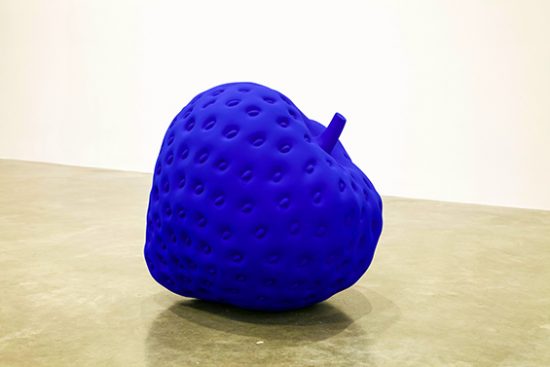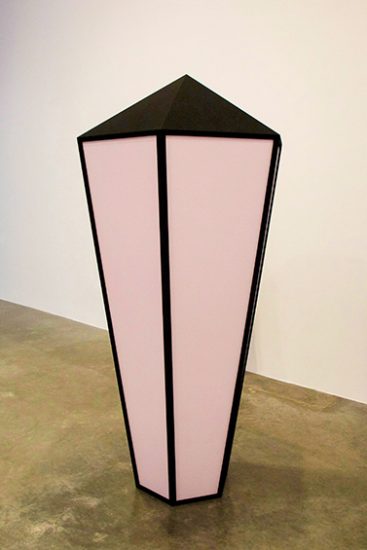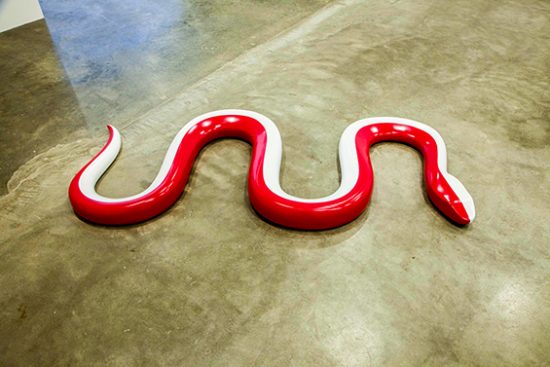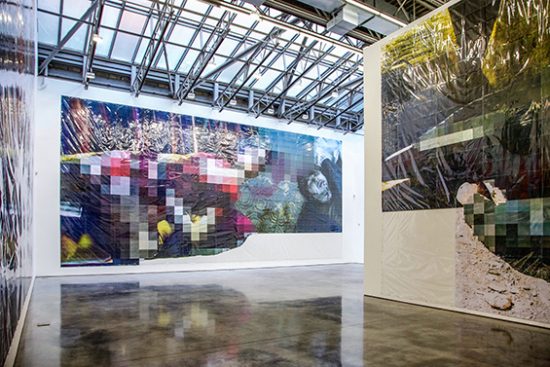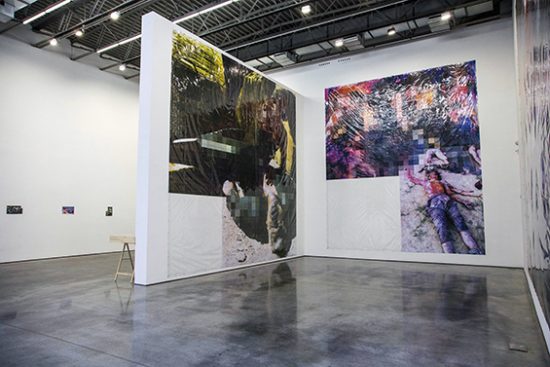Michelangelo Pistoletto, Accademia de Bellas Artes, La Habana con uovo, 2015
#2 Michelangelo Pistoletto, Con porta a sinistra, 2015
Michelangelo Pistoletto, Con tessuti, 2015
Michelangelo Pistoletto, Frutta e verdura, 2015
Michelangelo Pistoletto,Vasi cinesi, 2016
Michelangelo Pistoletto, a co-founder of Arte Povera, presents a series of recent “mirror paintings,” photo silk-screened images on highly polished stainless steel at Luhring Augustine. Called Scaffali (Italian for ‘shelves’), the paintings evoke tension between the aesthetic space and utilitarian objects they depict. Tension is further created by the trompe l’oeil effect of the reflective surfaces, which create the illusion of transparency, however, interrupted every now and then by the viewer’s own reflection. By foregrounding their presence as objects, the paintings “become” sculptural, insinuating themselves seamlessly into the gallery space.
Katharina Fritsch, Ei/Egg, 2017
Katharina Fritsch, Erdbeere/Strawberry, 2017
Katharina Fritsch, Laterne/Lantern, 2017
Katharina Fritsch, Schlange/Snake, 2017
By subverting the potential ennui caused by the familiarity some objects may evoke, Katharina Fritsch not only engages the viewer’s sense of sight, but touch as well. Her over-sized, painted bronzes at Matthew Marks radiate a strange sensuality, they attract the hand easily even if to confirm whether the work is soft as it seems, or rigid as it is. Fritsch is interested in “games between reality and vision…my work moves between these two poles. There is connection to the real, but at the same time to the unreal.”
Thomas Hirschhorn, Installation view
Thomas Hirschhorn, Installation view
Thomas Hirschhorn, Pixel-Collage 107, 2017
Thomas Hirschhorn, Pixel-Collage 98, 2017
Thomas Hirschhorn, Pixel-Collage 91, 2017
De-Pixelation is Thomas Hirschhorn’s concluding instalment in his two-year photographic series Pixel-Collage. The exhibition at Gladstone Gallery presents a series of massive-scale and small-scale works that combine fashion images with horrifying online images of the dead and maimed in conflict zones. Hirshhorn believes that “pixelation is a decision, not a technique or a system…it is a political decision.” Censorship, in other words. However, his works pixelate the fashion images to leave the records of violence untouched. His works are about the truth, reality, hypocrisy, and bullshit we are fed daily.
